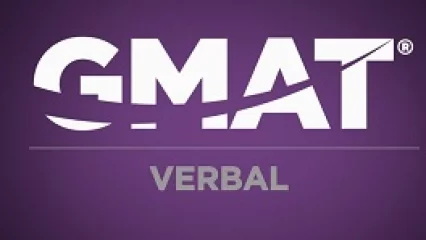PrepAdviser experts suggest that you check out the latest advice provided by GMAT Tutor on why you need to refresh your English language grammar:
To master GMAT Sentence Correction, it’s important to review basic grammar concepts. Sentence Correction can be a challenge even for native speakers. In fact, GMAT Verbal can be especially tricky for native speakers who rely on old grammatical habits.
With that in mind, let’s review three important parts of speech you need to know for the GMAT: verbs, nouns, and pronouns.
Verbs
No sentence is complete without a verb. The three most common forms of verbs are:
- Action verbs, which tell you what the subject of the sentence is doing. Examples include cook, write, teach and play.
- Verbs that act as equal signs. In other words, consider the following example: John is a graduate student. The verb is describes John's being as a graduate student.
- Linking verbs that describe the condition of a subject. For example: John feels that his performance on the GMAT was outstanding.
Nouns
On your first day of school, you learned that a noun is simply a person, place or a thing. However, you should also know that nouns function in multiple ways. Of course, the subject of a sentence tells you who or what is the focal point. On the other hand, a direct subject is who or what receives the action of an action verb.
Additionally, here are a few other forms nouns can take:
- Proper nouns indicate specific entities. Examples include New Jersey, America and The Economist.
- Common nouns are more general in describing entities. Think of words like laptop, animal, state and magazine.
- Abstract nouns describe ideas or concepts, such as freedom or justice.
Pronouns
While nouns are fairly easy to grasp, pronouns can be a little trickier. Typically these are substitutes for a noun or a noun phrase. Some of the most common forms of pronouns are:
- Personal pronouns, which include words like I and me (first person), you (second person) and he, him, she or her (third person).
- Reflexive pronouns, which indicate that an entity has taken action on itself. For example: Susie drove herself to the store. Typically, these all end in “self.”
- Possessive pronouns, which include words like mine, yours, hers and ours.
You will have plenty more to dive into before you truly master your parts of speech. Although the concepts we reviewed here are basic ones, they are a great starting point to help even the most seasoned readers refresh their memories.
Source: The Economist’s GMAT Tutor



